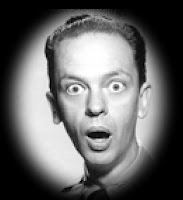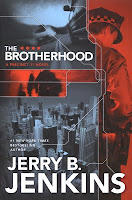Book Two in the Precinct 11 trilogy
from Tyndale House Publishers, Inc., Carol Stream, Illinois (Copyright 2011; released 1 September 2011)
400-page trade paperback, $14.99
ISBN: 978-0-4143-0908-8
From Jenkins's website:
"As a longtime Chicagoan, the son of a police chief, and the brother of two cops, I found this writing a labor of love."
Back Cover Copy:
Detective Boone Drake has just pulled off the most massive sting in Chicago history, bringing down the heads of not only the biggest street gangs in the city but also the old crime syndicate. The story is the biggest in decades, and the Chicago Police Department must protect the key witness at all costs. Yet despite top secret plans to transfer the witness prior to his testimony before the grand jury, an attempt is made on his life.
It soon becomes apparent that someone inside the Chicago PD leaked information to the shooter. As evidence mounts and suspicion points too close to home, Boone doesn't know whom he can trust. An investigation reveals that the turncoat might be someone very close to him, even someone he loves--or is someone just trying to cover up corruption at the highest level of the police department? Trusting the wrong person could prove fatal.
The Betrayal is as fresh at today's
Chicago Tribune. Literally. The windy city has survived more than its fair share of corruption scandals through its history, including some that are currently being unraveled. One in particular shares several markers with Jenkins's latest novel, though the two don't run parallel.
I made a quick call to Jenkins's office to see if the current high-level case--involving officers with CPD's elite Special Operations Section (SOS)--influenced him at all. His assistant said no. "He has been planning this trilogy for several years. Since his father was a police chief and two brothers are police officers, he's heard their stories." Thus, the verisimilitude.
Confession: cop thrillers are not my genre of choice. Though I read and loved Jenkins's
Left Behind series, eagerly awaiting each new release, would this book hold that same attraction? Then I read the first four paragraphs.
Boone Drake awoke before sunup with little recollection of the previous two days. [All right. The hook was in my mouth. But it wasn't set yet.]
Oh, he knew the basics--where he was, that he was fortunate to be alive. Two uniformed officers still guarded his door. The noises and odors invaded his room at what everyone still called Cook County Hospital. And slowly, it all began to come back.
Boone, a detective in the Gang Enforcement Section of the Chicago Police Department, had masterminded the most massive sting in CPD history, bringing down the heads of not only the biggest street gangs in the city but also the Outfit--the old crime syndicate.
Key to the operation had been the secret spiritual conversion of gang kingpin Pascual Candelario--and his becoming an informant. [By the time I got to this point, I was hooked.]
The Betrayal picks up where the first book in the trilogy,
The Brotherhood,
leaves off, with Boone Drake in the hospital recovering from the wound left by a 45 caliber Glock slug that had slammed into his chest as he tried to protect Candelario, crook turned Christian. And state's evidence. By all rights, Drake should be receiving a hero's accolades from the department while relaxing and recuperating. Instead, amid accusations against the integrity and reputation of Haeley Lamonica, also a CPD officer and the love of Drake's life, he sets out to clear her name, if she's as innocent as he believes her to be, by uncovering corruption in high places.
The rapid-fire action propels the reader through the thirty-seven chapters and the epilogue, allowing very little time to gasp for air. As I neared the end, I couldn't lay it down and turn off the light to sleep. If at any point I dared to slip into complacency, sure that I knew what was coming, Jenkins switched things up and sent my heart into overdrive.
There were times when I was concerned that too much would be revealed about pre- and extra-marital relationships. Also, when Haeley Lamonica is in jail, there is opportunity to go into graphic detail about life and abuse in such a place. I needn't have worried. Jenkins proved himself capable of handling such issues in the
Left Behind series, never crossing the line of Christian propriety, proving that a skilled writer need not include gratuitous and offensive details to convey a point.
Jenkins's characters are well developed and realistic. Even though, as a detective in CPD's Gang Enforcement Section, Drake moves among the dregs of vice, he holds to a high standard, one that reflects Jesus Christ in both his personal and professional life. Those around him who are corrupt spend little time in trying to entice him to betray his calling. They'd rather see him dead.
"Dianna, my wife of 40 years, is my everything," says best-selling author Jerry Jenkins
Jenkins began his writing career as a sports reporter for his local newspaper. He is former editor of
Moody Magazine, vice president for publishing, and now chairman of the board of trustees for the Moody Bible Institute of Chicago. He is author of more than 175 books, including the 70,000,000-selling
Left Behind series. He holds honorary doctorates from Bethel College (Indiana), Trinity International University (Illinois), Colorado Christian University, Huntington University (Indiana), and Tennessee Temple University.
Riven, which Jenkins considers his life's work novel, released in July 2008 to stellar reviews and has been optioned for a movie.
His articles have appeared in
Time,
Reader's Digest,
Parade, and
Guideposts. He is contributing editor for
Writer's Digest.
He has co-written novels and non-fiction as-told-to autobiographies with Tim LaHaye, Bill Gaither, Billy Graham, John Perrodin, Dallas Jenkins (his son), Chris Fabry,
and Ron DiCianni.
Writers often receive advice to "find the genre you're good in and stick to that." Jenkins either didn't get the message or he chose to disregard it, because he writes with ease in numerous genres, including speculative fiction, cop thrillers, an international spy thriller, and Christian counseling and motivational non-fiction.
Further, he owns Jenkins Entertainment, a Chicago-based film-making company, and Christian Writers Guild. He is an in-demand speaker, especially on the subject of writing, and a popular humorist.
He and wife Dianna live in Colorado. They have three grown sons and eight grandchildren.
Read more about the life and work of Jerry Jenkins
here.
Read on!
Because of Christ,
Sharon
Disclosure of Material Connection: Review copy provided by publisher. A positive review was not required; opinions expressed are those of the reviewer, Sharon Kirk Clifton.




